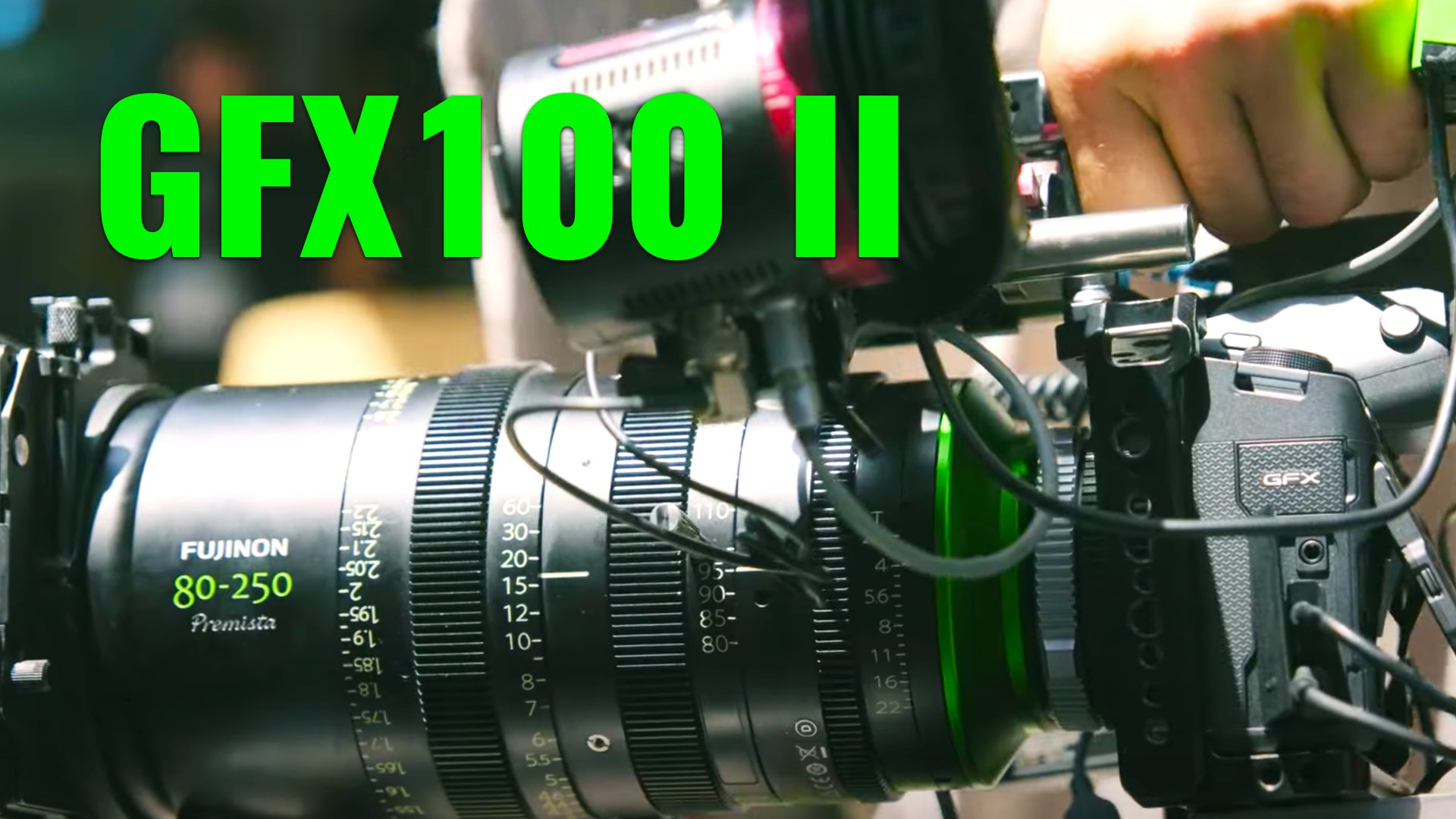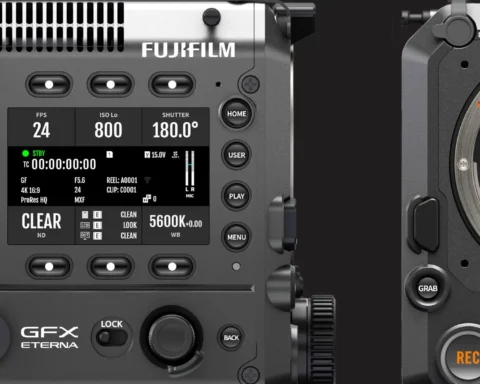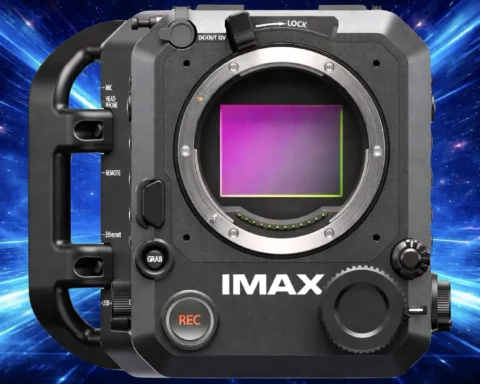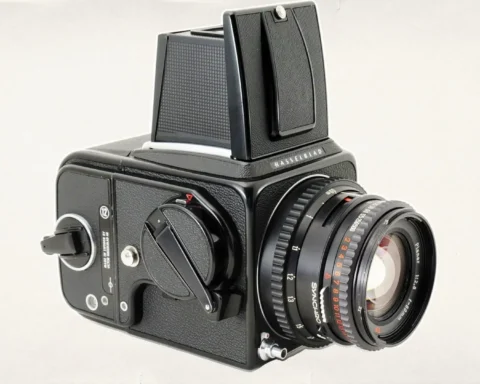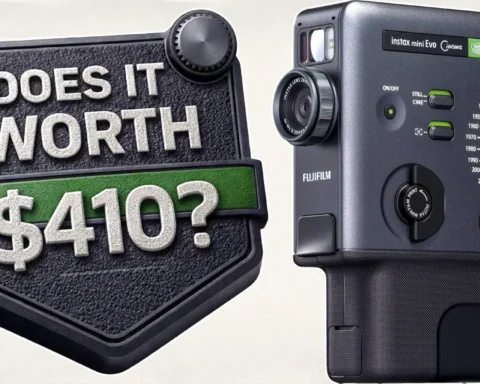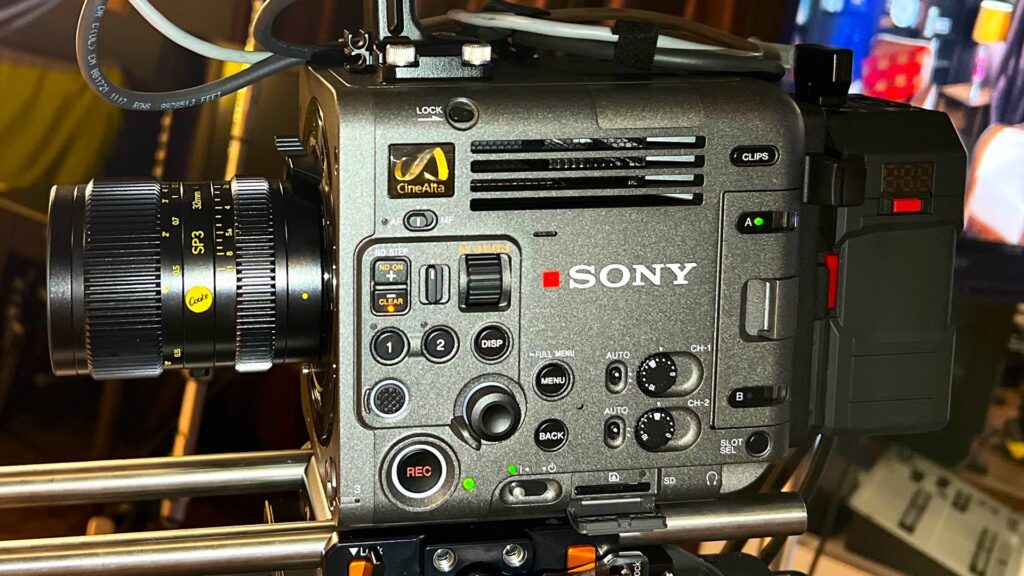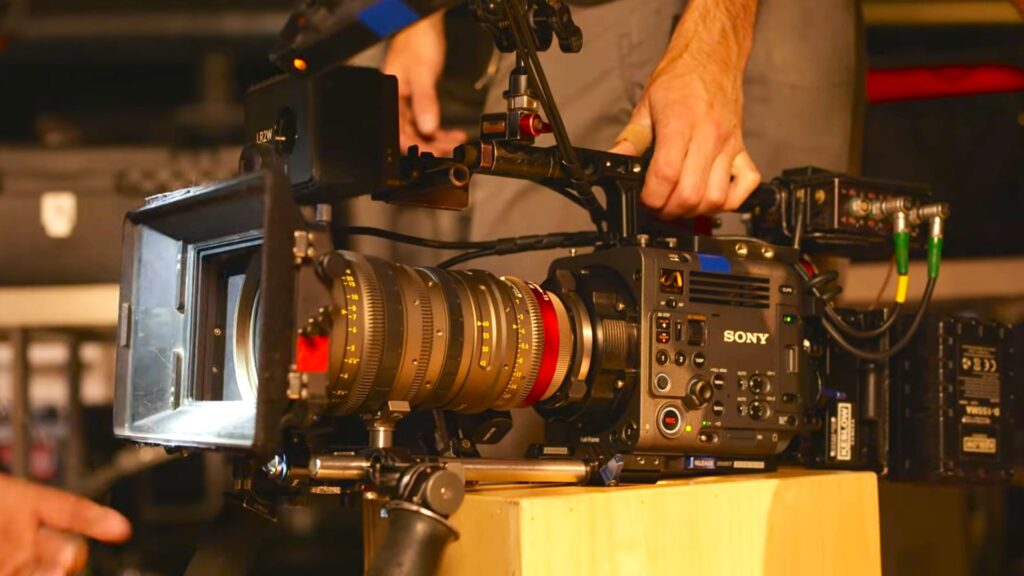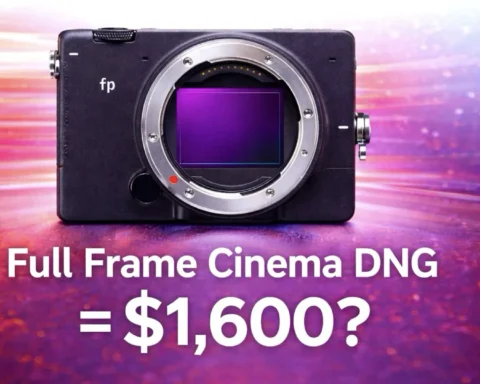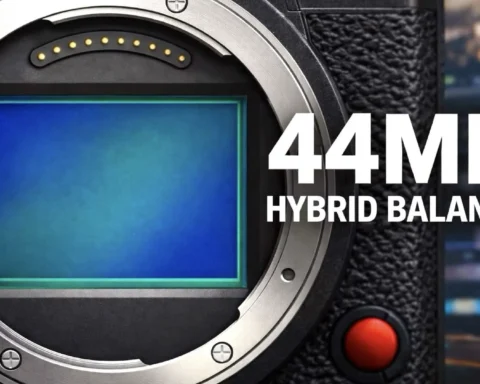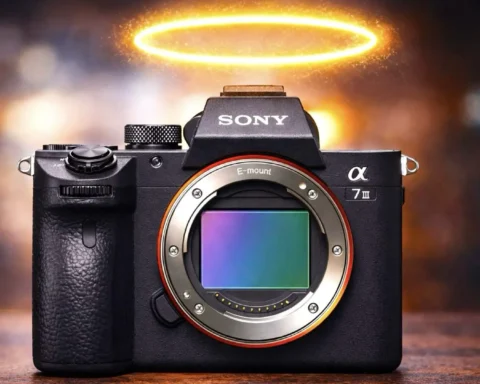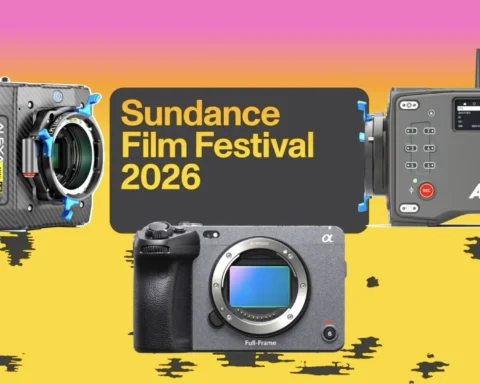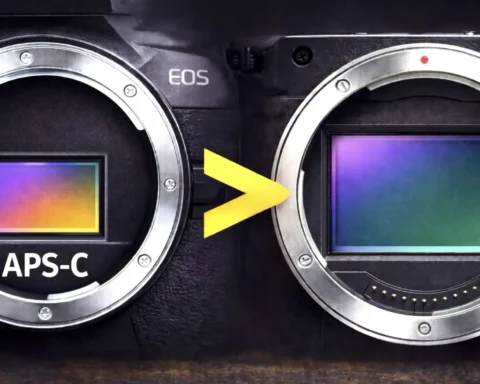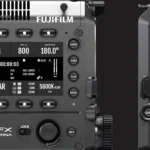FUJIFILM has introduced its new flagship, the GFX100 II. This camera is NOT defined as Mark II, but a completely new camera with a newly designed medium format and fast sensor that is 2nd largest sensor behind the acclaimed ARRI ALEXA 65. Well, it’s not exactly medium format, but a very large sensor camera (we’ll elaborate on that in a bit). However, it’s interesting to note that the GFX100 II is the new flagship by FUJIFILM, but with a more affordable price than the GFX100 and was developed for filmmakers that love the look & feel of a large sensor. Highlights are below:
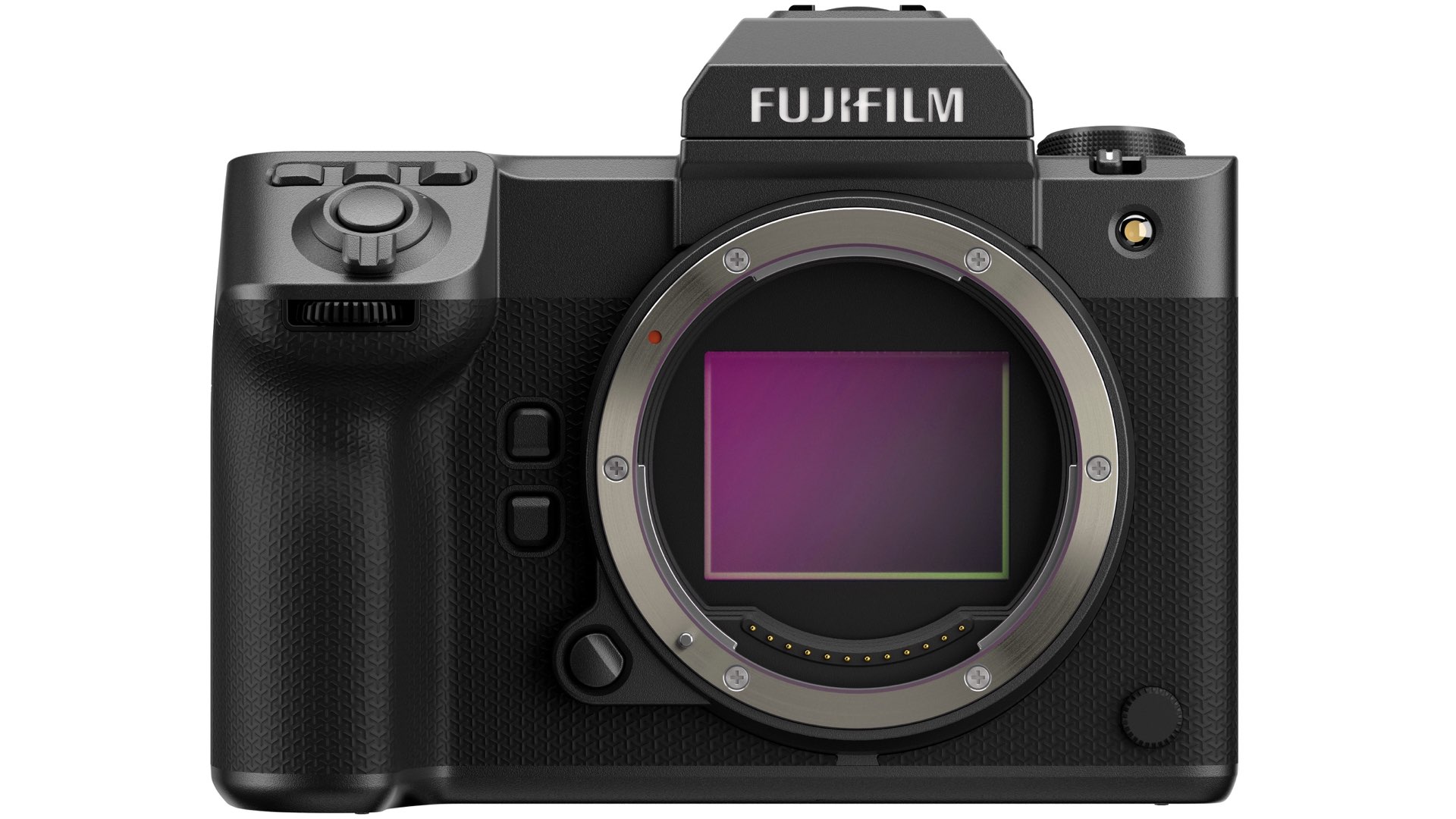
FUJIFILM GFX100 II: Medium-format for the masses
For now, the GFX series which specializes in medium format sensors, consists of the GFX100 (the first medium format camera that shoots RAW), Fujifilm GFX 50S (51.4MP), Fujifilm GFX 50R (a smaller, lighter version of the GFX 50S), and the GFX 100S (S for small). Yesterday, the company introduced the GFX100 II digital camera which is a new flagship addition to the GFX System’s family of large-sensor (medium format?) mirrorless digital cameras. The new camera incorporates a 55mm large-format image sensor, that is nearly 1.7x larger than the 35mm image sensors found in full-frame cameras. Explore the ‘dry’ (naked) picture of the GFX100 II below, as the rest of the pictures in this article demonstrate the GFX100 II being utilized in an actually complex filmmaking project (the result is at the end of the article).
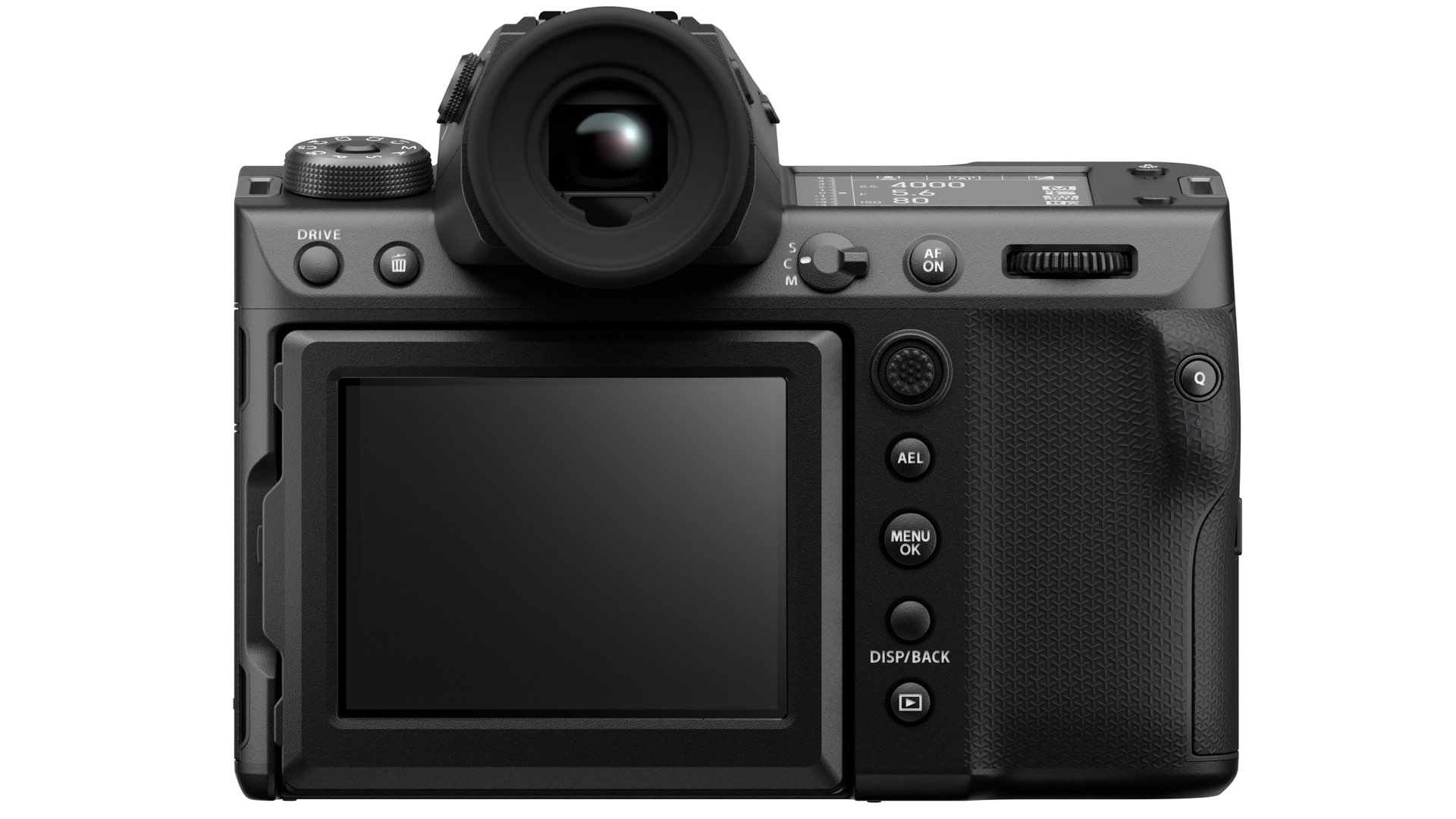
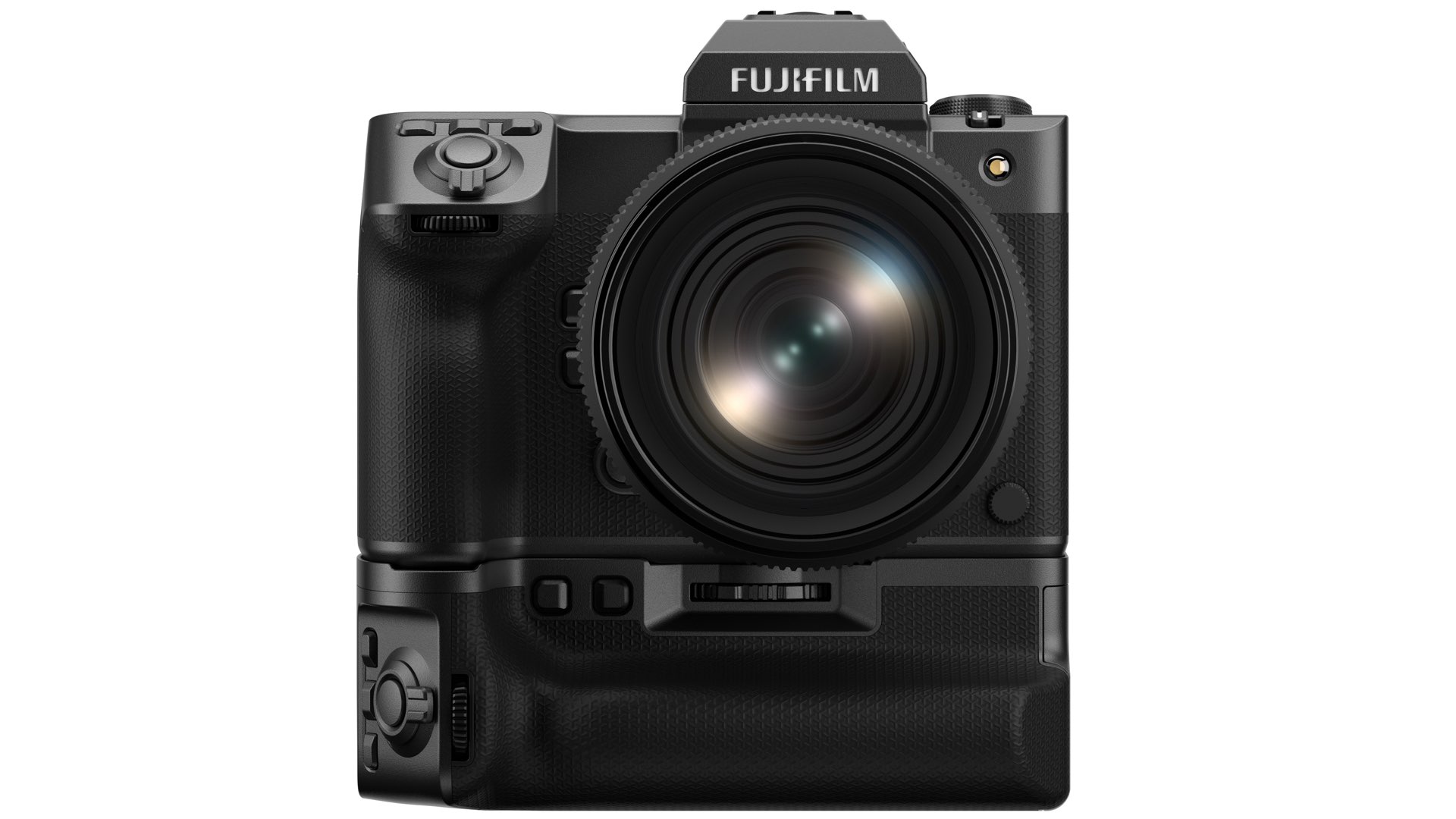
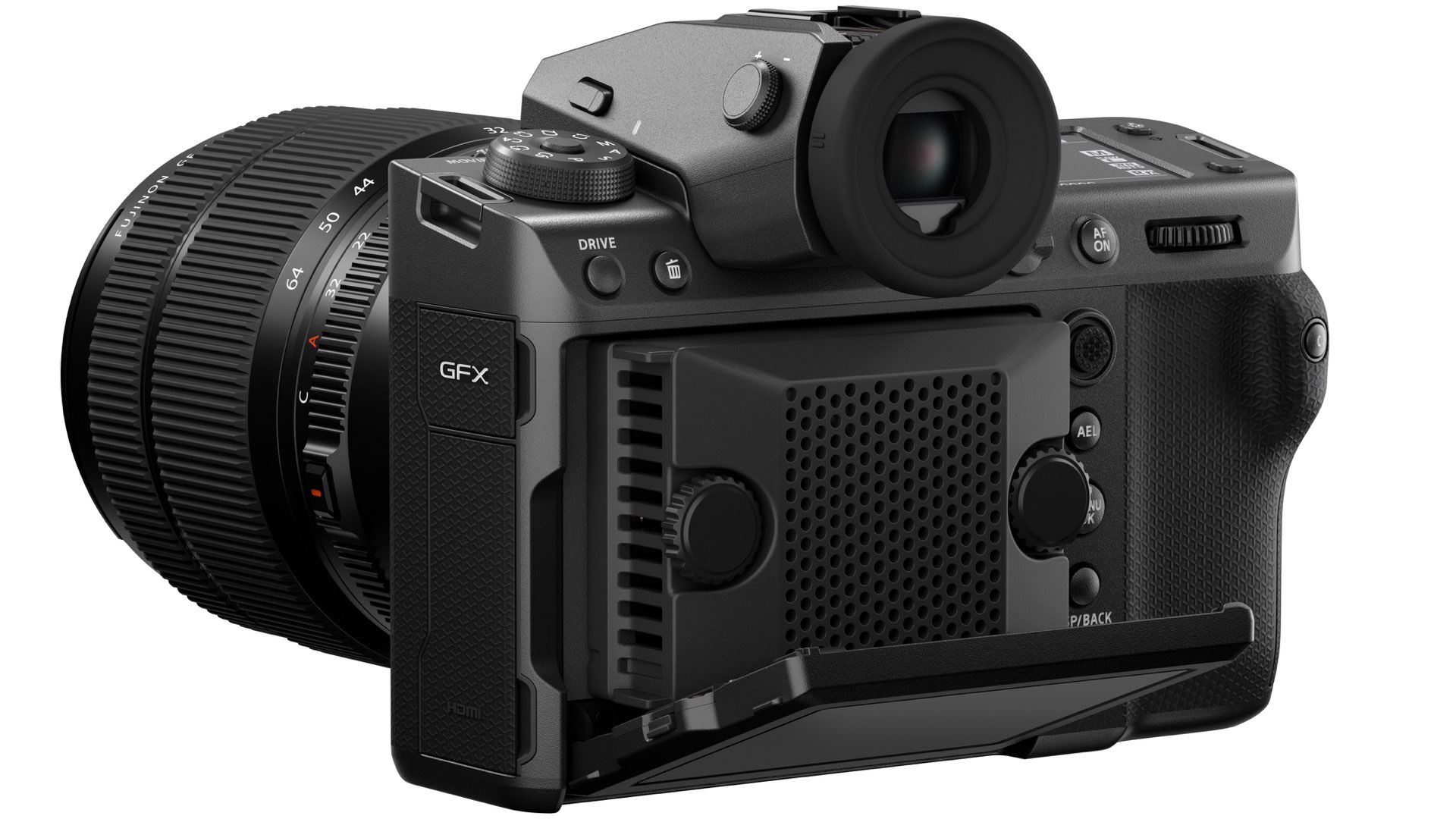

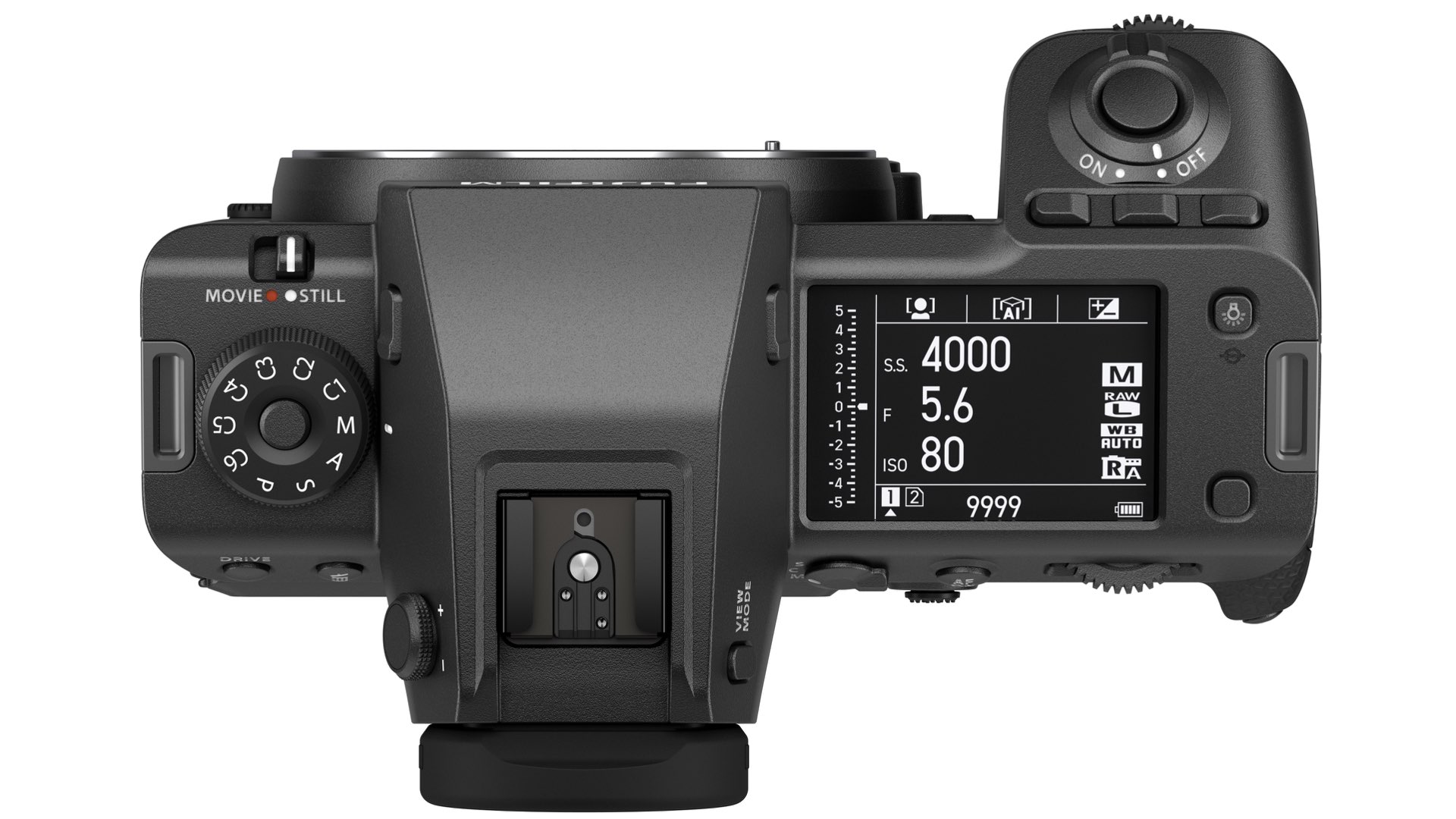
102 MP newly developed sensor
GFX100 II includes a newly developed, 102-megapixel high-speed image sensor and Fujifilm’s latest 5th generation X-Processor 5 image processing engine, which doubles the signal readout speed compared to the current model. This in turn provides unique benefits to image makers, especially in the areas of high-speed, continuous shutter mode, autofocus (AF), and video.
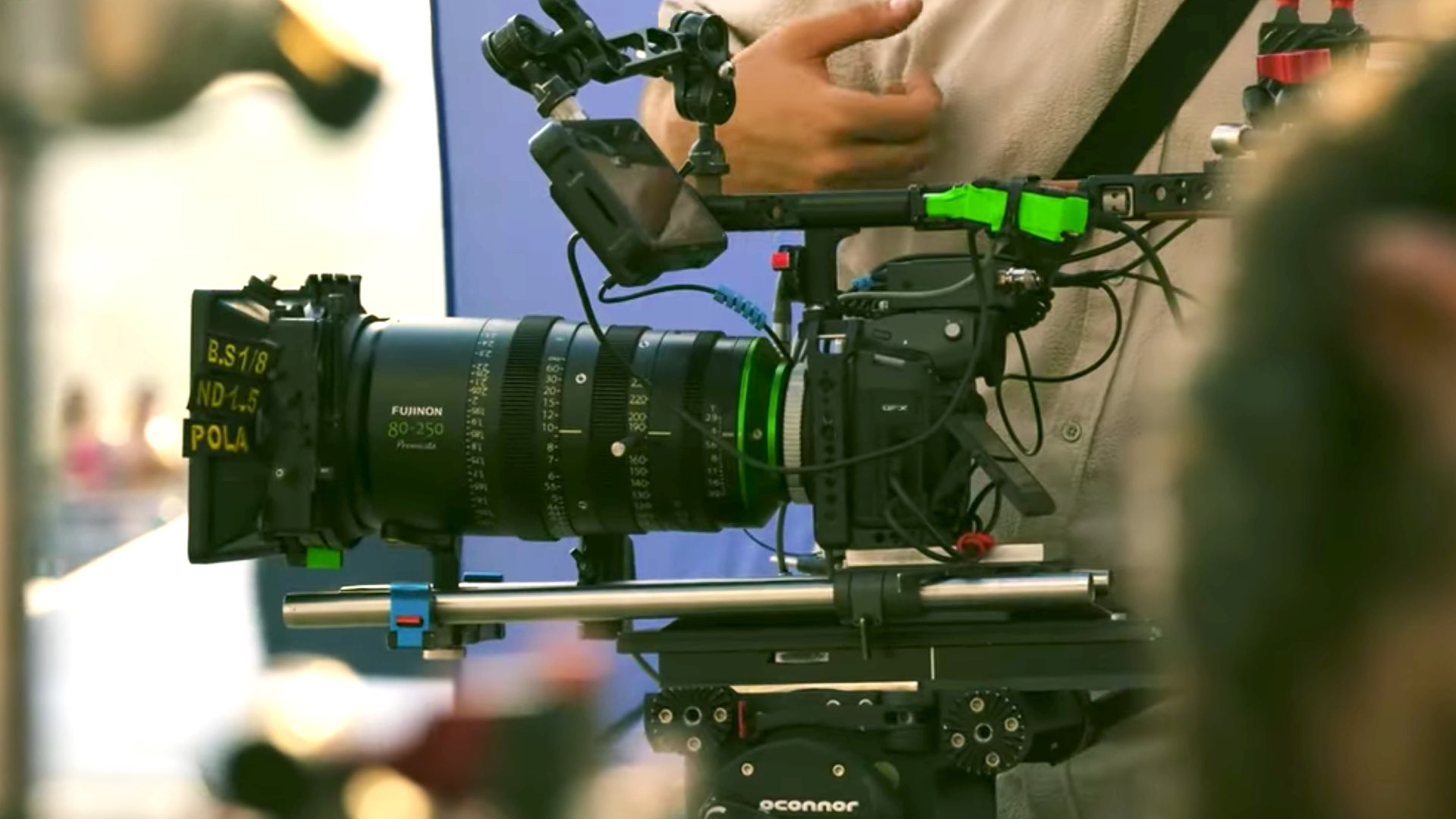
AI based AF
GFX100 II utilizes Fujifilm’s latest high-speed image sensor, along with its advanced image processing engine to deliver Artificial Intelligence (AI) based subject-detection autofocus (AF), which was most recently featured in the FUJIFILM X-H2S mirrorless digital camera. Developed with Deep Learning technology and updated with the latest prediction AF algorithm, GFX100 II now incorporates AI-based subject-detection AF to quickly track and detect animals, birds, vehicles, and other fast-moving objects like insects and drones, and it automatically keeps them in focus.
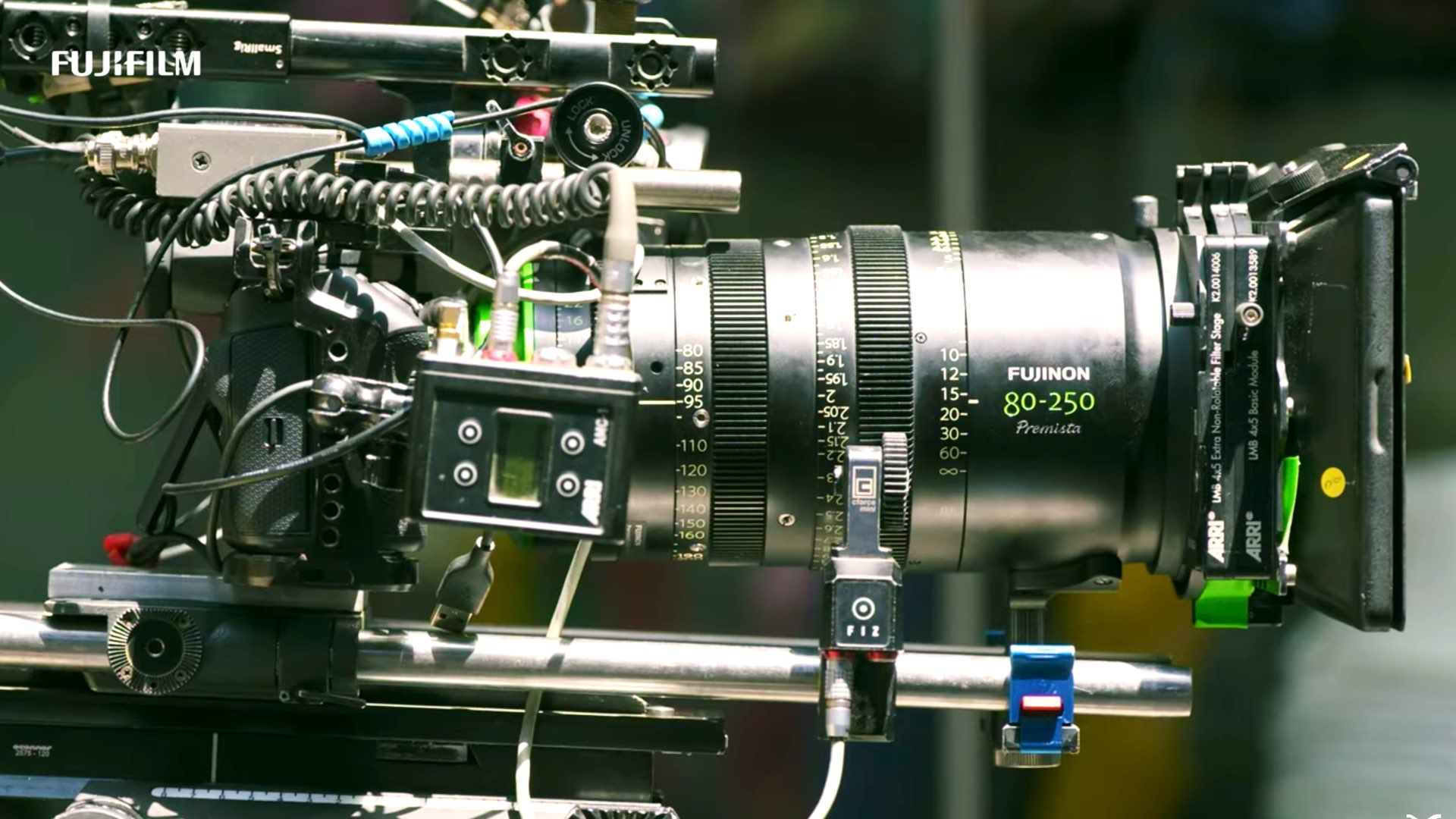
ProRes and 4:2:2 10 internally
GFX100 II’s new sensor also provides enhanced capabilities for video production. The ability to internally record Apple ProRes 4:2:2, 10-bit video at 4K/60p and 8K/30p is a significant first for GFX System cameras. With the use of an optional, third-party GF to PL lens adapter, multiple video recording formats can be natively accommodated on GFX100 II, making the FUJINON PREMISTA Large Format and 35mm Anamorphic cinema lenses easily adaptable for various uses including cinematic applications. Additionally, GFX100 II supports three Apple ProRes codecs, i.e., Apple ProRes 422 HQ, Apple ProRes 422, and Apple ProRes 422 LT. When recording in Apple ProRes, the camera can also output h.264 and Apple ProRes 422 Proxy files, which can streamline workflows overall from production to post-production.
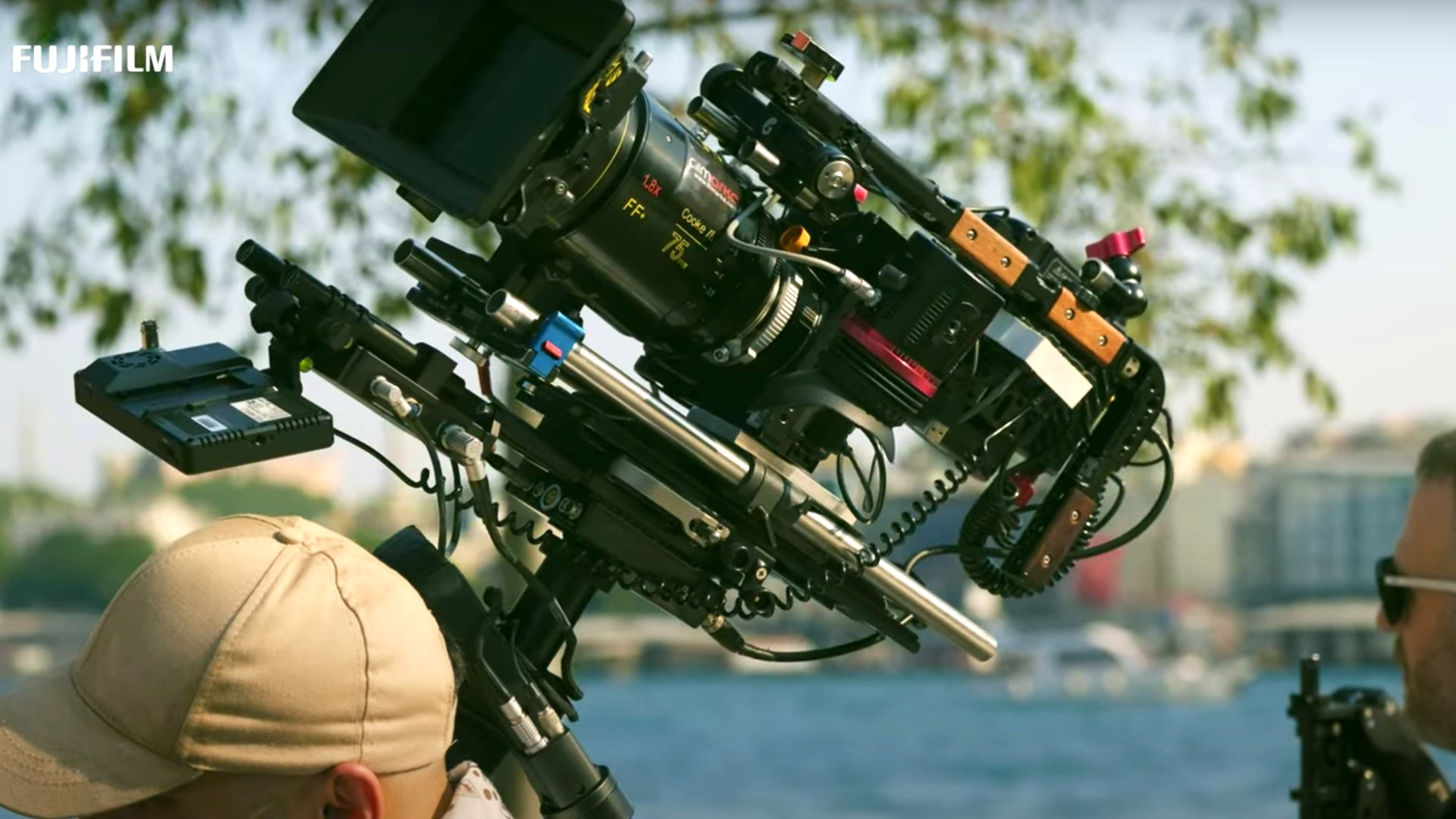

frame.io integration: Built-in
GFX100 II also features Ethernet, HDMI Type A, and USB-C terminals for enhanced external device connectivity. Dual card slots support one CFExpress Type B and one SD card. CFExpress Type B cards are required to access the GFX100 II’s enhanced video performance features. Production workflows are additionally streamlined with the camera’s native, accessory-free integration for Frame.io Camera to Cloud, which seamlessly delivers files directly to the cloud.
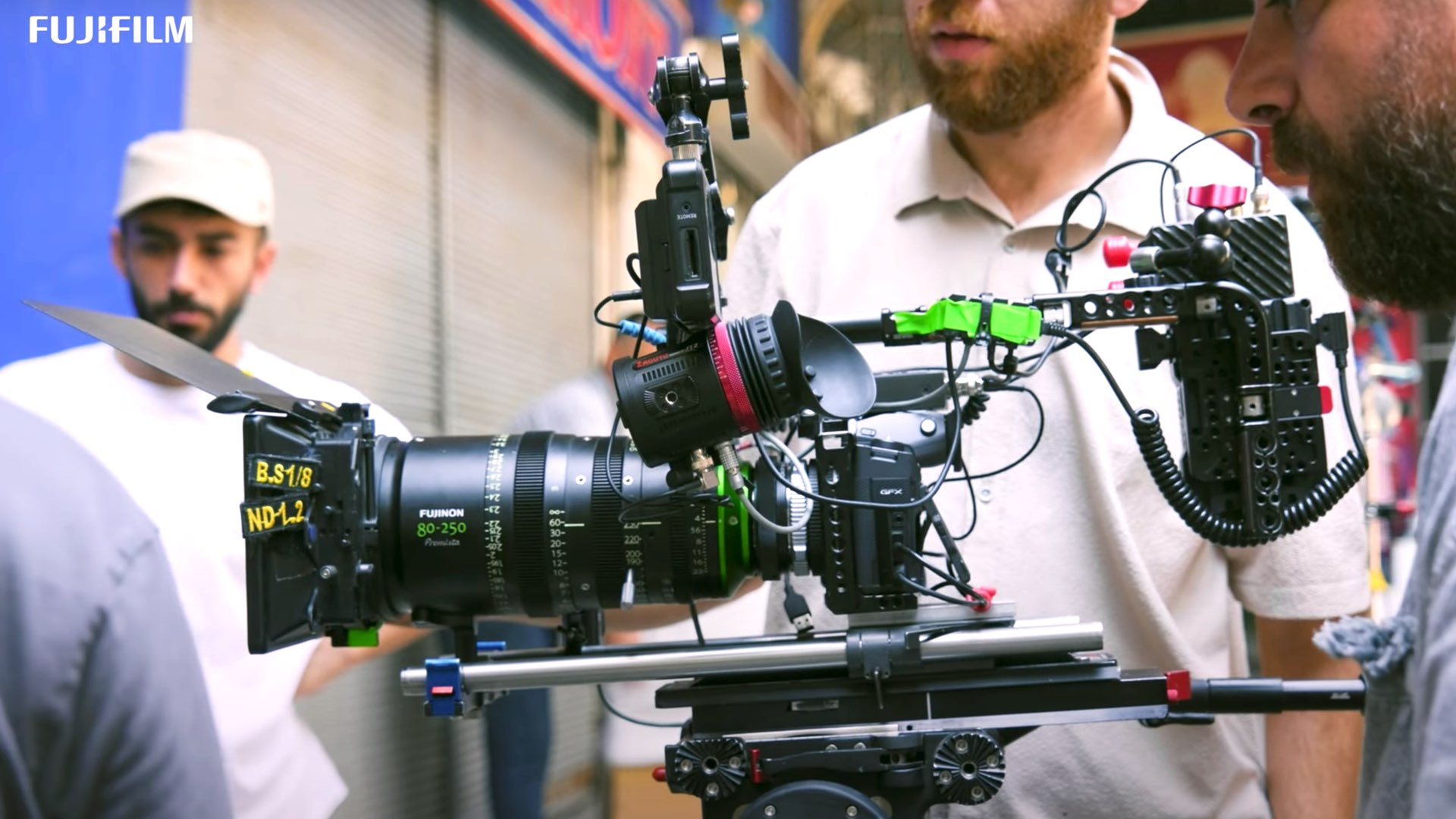
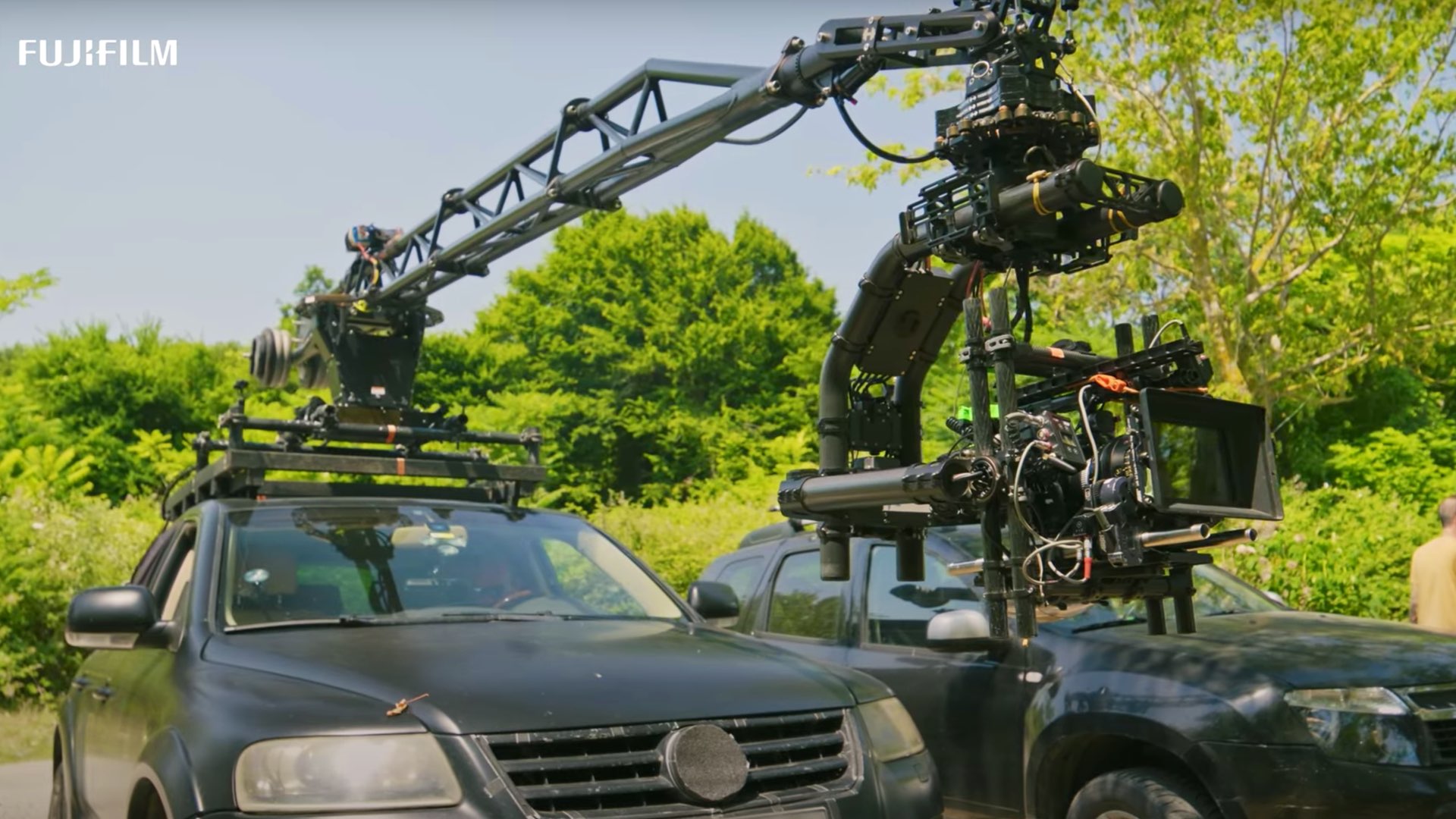
ISO80: Low noise mode
Fujifilm’s innovation of the pixel structure has enabled the use of ISO80 as a standard sensitivity. When the sensor sensitivity is set at ISO80, the camera can make images with incredible dynamic range and noise levels that are lower than previous GFX100 and GFX100S models. The new sensor’s photosites have been optimized to increase light use efficiency at the sensor’s edges, thus improving both image quality at the edges of the photo, and AF accuracy over the previous, GFX100 and GFX100S models.
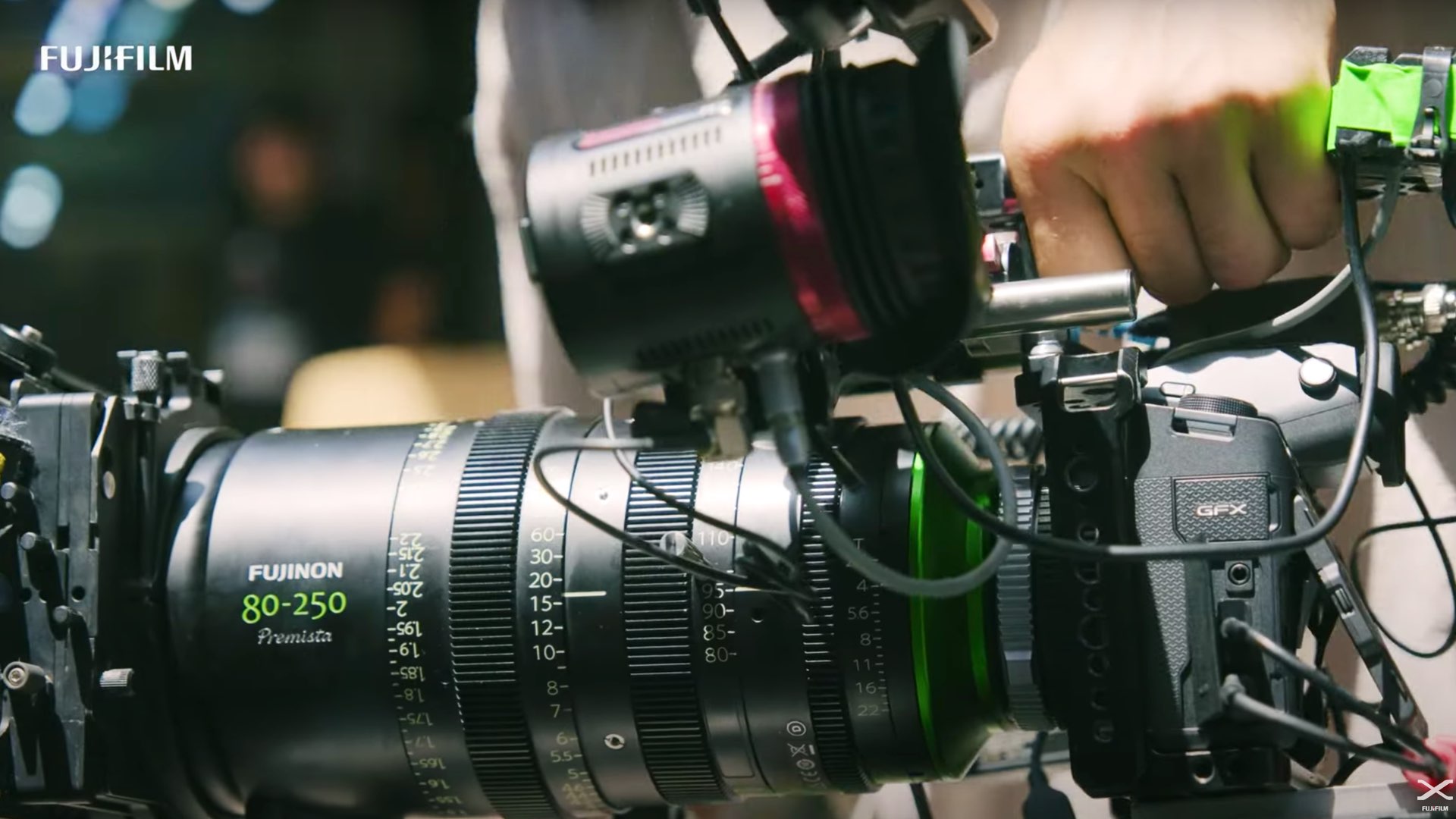
Design and interface
Hardware enhancements include a five-axis, in-body image stabilization (IBIS) that provides up to 8-stops of image stabilization, as well as 1.0x viewfinder magnification, and a high-magnification, high-definition 9.44-million-dot EVF. The camera’s new design also features a large, sub-LCD, tilted top panel, and a fashionably textured grip.
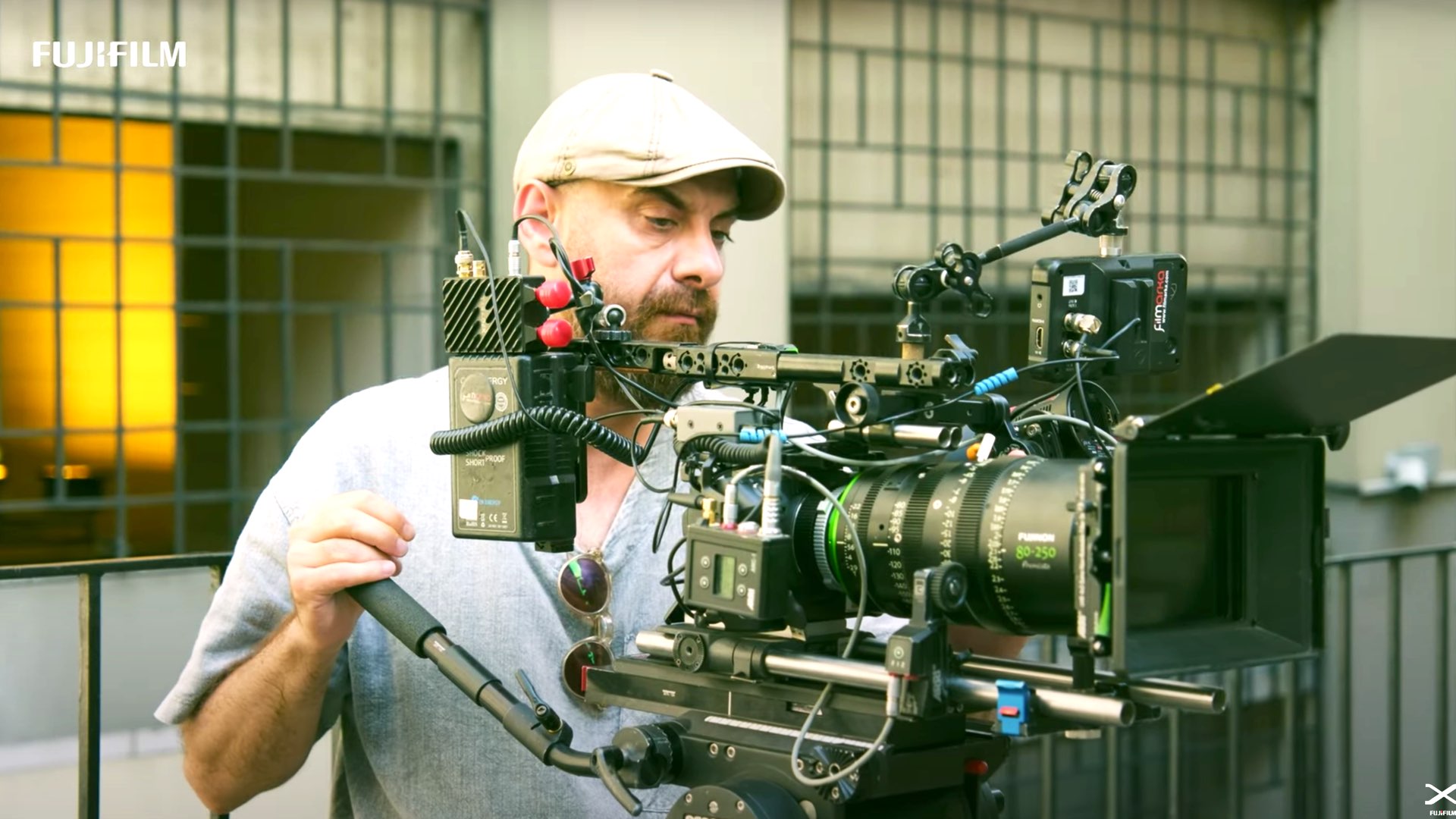
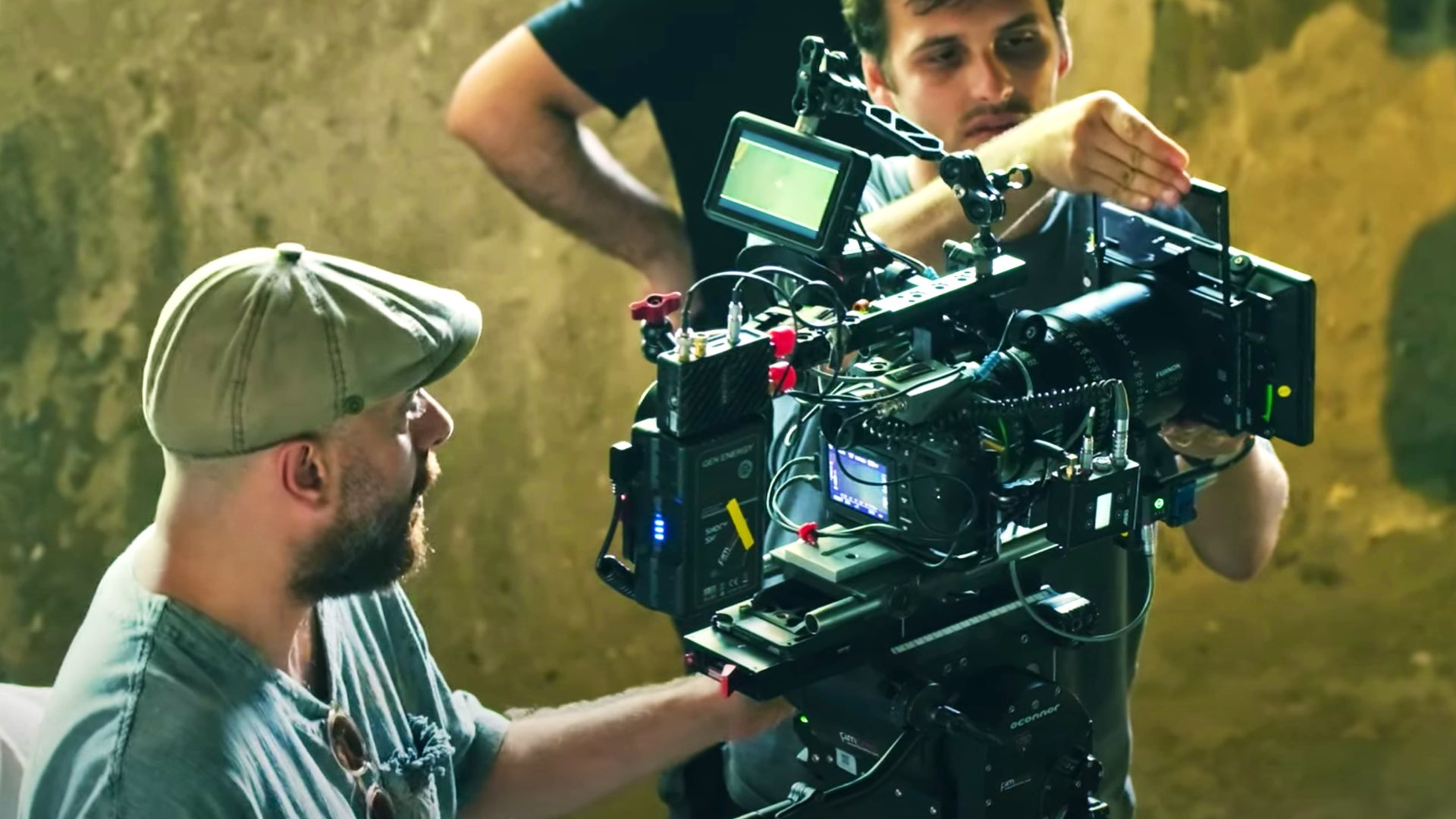
Explore the table with the tech specs below:
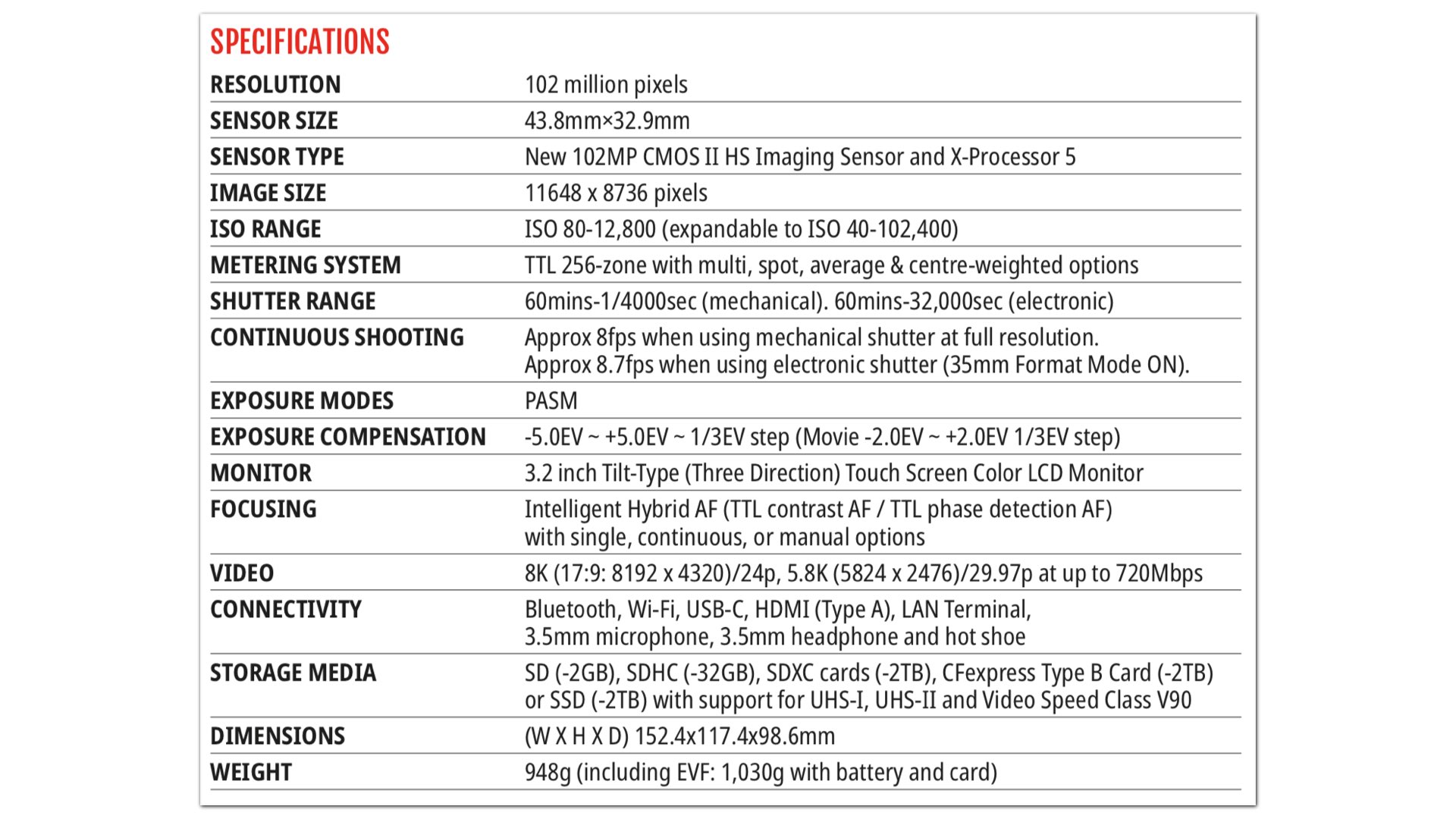
Pricing and availability
The GFX100 II is expected to be available in early fall 2023 at a Manufacturer’s Suggested Retail Price of $7,499.95 USD.
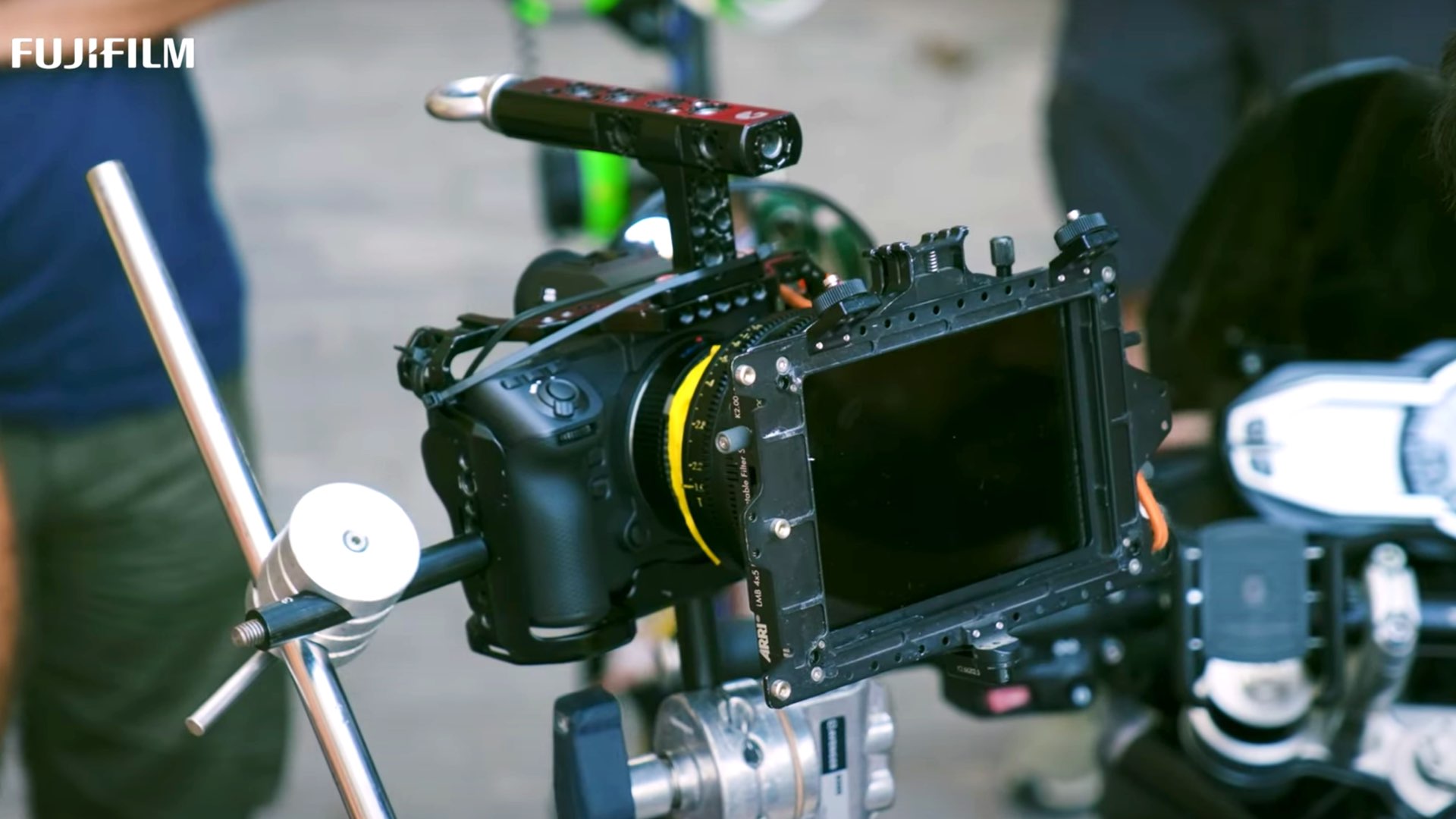
Is it a medium format or just a very large sensor?
It’s important to note that the new FUJIFILM GFX100 II is not exactly a medium format camera, but more like a large sensor camera. For comparison, The ALEXA 65 has the largest sensor of all professional cinema cameras. The Hasselblad H6D-100c has a larger sensor than that. Just imagine a larger sensor than the ALEXA 65. The FUJIFILM GFX100 II sensor sits in between this and the Super 35 (look at the charts below. For comparison, RED DSMC2, and DSMC3 VV sensor dimensions are 40.96 x 21.60, ALEXA LF Open Gate provides 36.70mm X 25.54mm, and ALEXA 65 sensor is 54.12mm X 25.58mm. The sensor of the FUJIFILM GFX100 II is enormous, but it’s not as big as the ALEXA 65 nor Hasselblad H6D-100c, thus it wouldn’t be right to call it a medium format sensor. It’s just a very large sensor. Anyway, the GFX100 II is the most affordable camera for its sensor size.
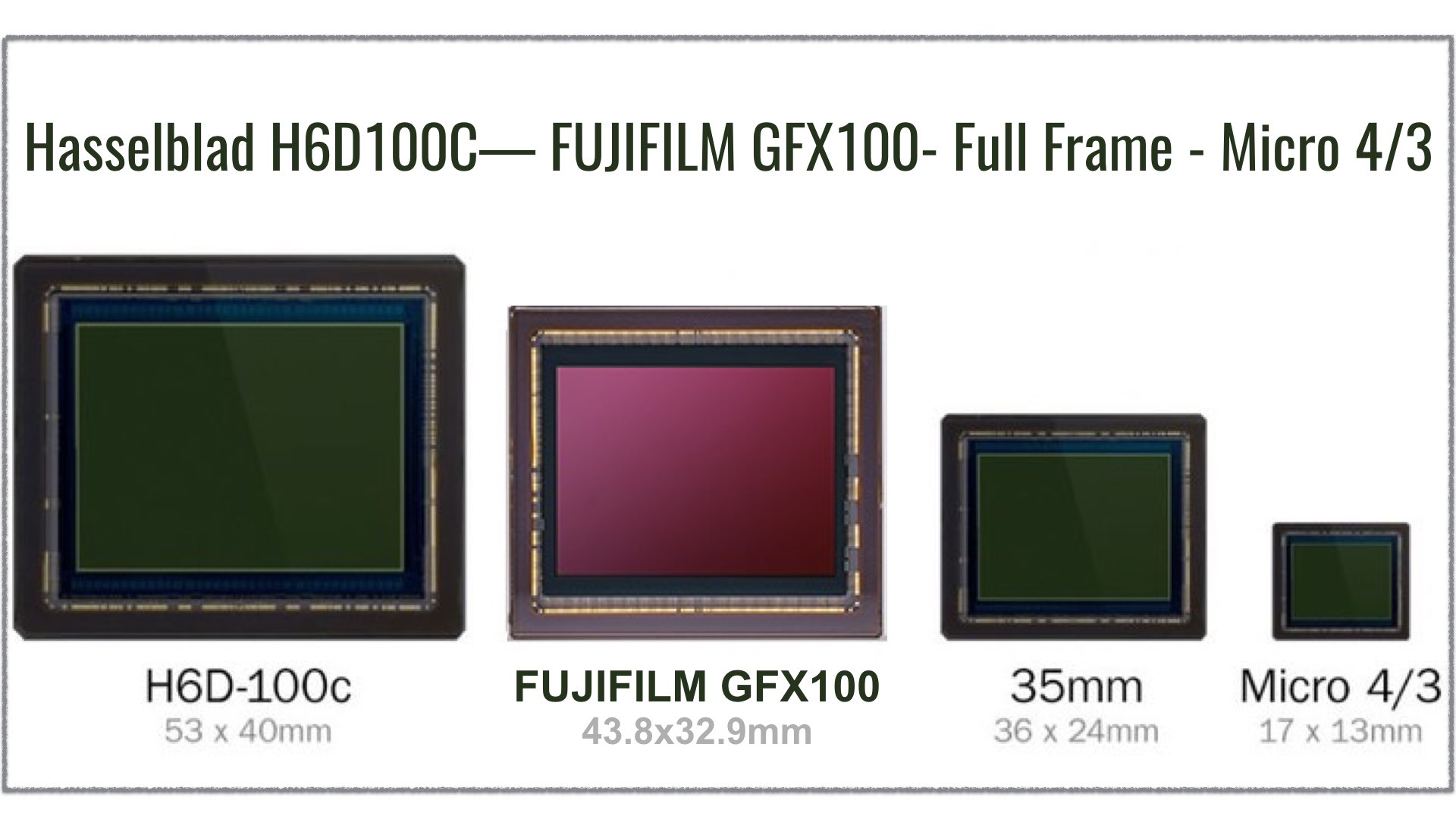
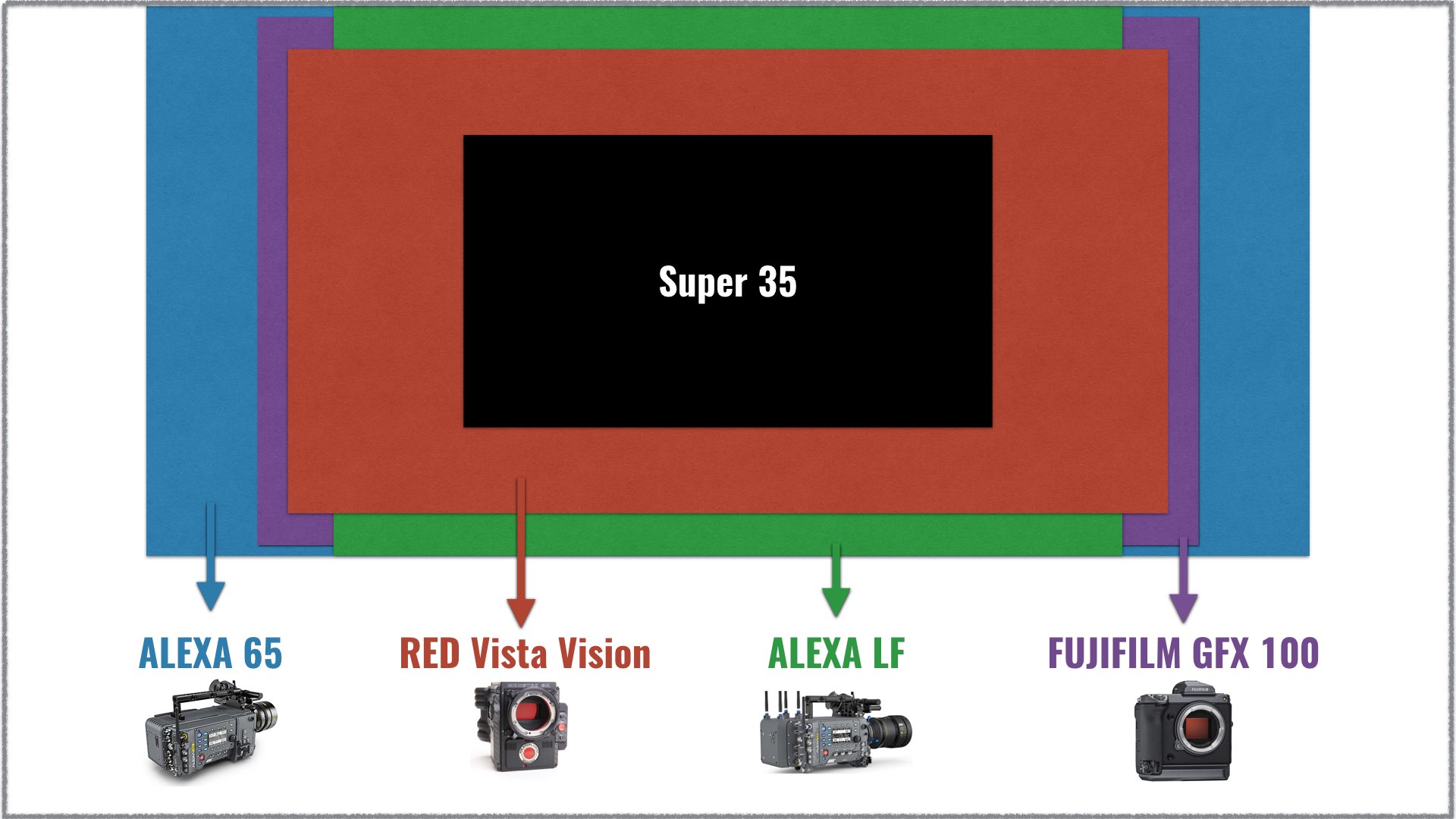
Sample footage
Now for the most important part — test footage. Actually, FUJIFILM has put this little beast through its pace by making a short action film with it and treating the camera as a cinema camera by definition, by pairing the GFX100 II with cinema lenses, rigs, and within challenging shooting environments. ‘Temptic Runic’ is an original project of Ahmet Bayer GYD and Arda Yıldıran GYD to show the capabilities of Medium Format sensors in movie shooting. This short movie was filmed in İstanbul and shot completely with GFX100 II. This film demonstrates the color reproduction, stabilization, performance in low light conditions, and usability of the GFX100II model. Lenses Used In Filming: Fujinon GF, Fujinon Premista, Blackwing, Clavius, Cooke S7 Anamorphic, and Zeiss Lightweight Zoom. The result is very intriguing. Watch the ‘Temptic Runic’ short film below:
Product List
Here are the products mentioned in the article, and the links to purchase them from authorized dealers.
- FUJIFILM GFX100 II Medium Format Mirrorless Camera

